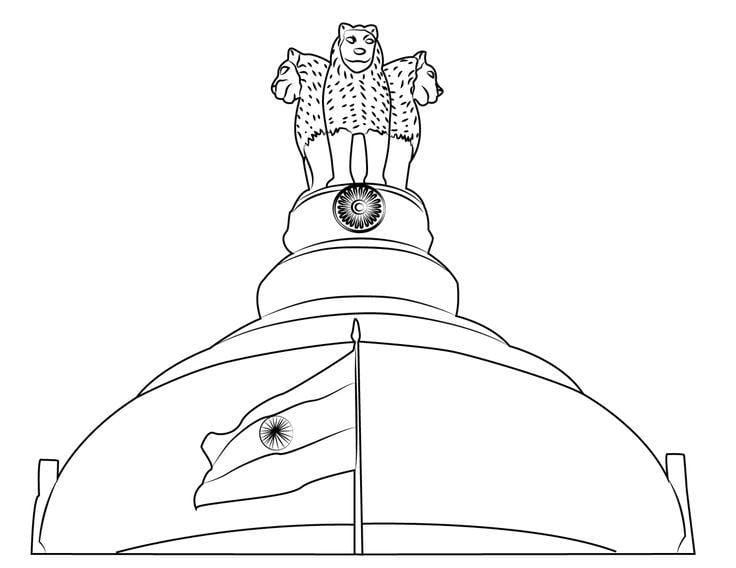
Watching the semis of the T20WC was a very uplifting experience in so many ways. The rain delays prolonged the viewing ( with the fear ever present that the match might actually not be completed, in which case under the tournament rules, India would’ve gone through to the Finals. But I wanted them to go thru after beating Old Blighty, rather thrashing them so they don’t crib for rest of their existence) but the nervous excitement ensured I didn’t yawn (neither did Choco, to put the record straight on the patriotic pooch) . After a lot of chatter on the ground and in the studios { how these TV anchors on cricket shows must hope the TV channels start adopting them a policy like the post Tsar era Russian publishers and pay them by the word: I mean literary value aside, I will gladly climb up a high mountain and its cliff face than read either of War and Peace or the Brothers Karamazov at one go. These heavy tomes had more pages than my edition of Gray’s Anatomy (which I used more to build muscles in my forearm and arm), 1200 odd and 850 odd, Crime and Punishment is a slim paperback in comparison, a mere 400 odd pages}, the toss actually took place and the guys came out for the national anthem to be played. I noticed Moeen and Adil not recite a single line of God Save Our King while every one of their teammates were singing, and this was followed by a recital of Jana Gana Mana – both Choco and I stood to attention for those 50 odd seconds, although I discovered he did it thinking it to be bedtime and whined after I sat down and made me escort him to his mattress. That made me think about Jana Gana Mana. I had actually done an Independence Day Special program anchored by Kiran Mishraji on the occasion of our 75th Independence Day aired on AIR Delhi Gold FM. I had researched extensively on the origins that time. Gurudev Rabindranath Thakur has written it in heavily Sanskritized Bangla and what we hear is only the first of 5 stanzas he wrote. Here is the entire verse.
.
जनगणमन-अधिनायक जय हे भारतभाग्यविधाता!
पंजाब सिन्ध गुजरात मराठा द्राविड़ उत्कल बंग
विन्ध्य हिमाचल यमुना गंगा उच्छलजलधितरंग
तव शुभ नामे जागे, तव शुभ आशिष मागे, गाहे तव जयगाथा।
जनगणमंगलदायक जय हे भारतभाग्यविधाता!
जय हे, जय हे, जय हे, जय जय जय जय हे।।
.
अहरह तव आह्वान प्रचारित, सुनि तव उदार बाणी
हिन्दु बौद्ध सिख जैन पारसिक मुसलमान खृष्तानी
पूरब पश्चिम आसे तव सिंहासन-पाशे प्रेमहार हय गाथा।
जनगण-ऐक्य-विधायक जय हे भारतभाग्यविधाता!
जय हे, जय हे, जय हे, जय जय जय जय हे।।
.
पतन-अभ्युदय-वन्धुर पन्था, युग युग धावित यात्री।
हे चिरसारथि, तव रथचक्रे मुखरित पथ दिनरात्रि।
दारुण विप्लव-माझे तव शंखध्वनि बाजे संकटदुःखत्राता।
जनगणपथपरिचायक जय हे भारतभाग्यविधाता!
जय हे, जय हे, जय हे, जय जय जय जय हे।।
.
घोरतिमिरघन निबीड़ निशीथे पीड़ित मूर्छित देशे
जाग्रत छिल तव अविचल मंगल नतनयने अनिमेषे।
दुःस्वप्ने आतंके रक्षा करिले अंके स्नेहमयी तुमि माता।
जनगणदुःखत्रायक जय हे भारतभाग्यविधाता!
जय हे, जय हे, जय हे, जय जय जय जय हे।।
.
रात्रि प्रभातिल, उदिल रविच्छवि पूर्व-उदयगिरिभाले
गाहे विहंगम, पुण्य समीरण नवजीवनरस ढाले।
तव करुणारुणरागे निद्रित भारत जागे तव चरणे नत माथा।
जय जय जय हे जय राजेश्वर भारतभाग्यविधाता!
जय हे, जय हे, जय हे, जय जय जय जय हे।।
.
It was publicly performed for the first time on December 27, 1911 at the Bharat Bhavan on Bowbazar street in Kolkata. The INC started in 1885 by a Brit bureaucrat A. O. Hume as a means to control the restive “natives” held its session in Kolkata in 1911. It was first performed by Gurudev’s niece Saraladevi Chowdhurani & a few other school students in front of the leaders present, including the then President Bishan Narayan Dhar, Ambika Charan Mazumder and Bhupendra Nath Bose. It was never meant to be a laudatory song for George V in his Delhi Durbar which was held at the same time. It was published under the title Bharat Vidhata in Tattvobodhini Patrika a journal for the Brahmo community edited by Gurudev himself. It was actually adopted as India’s national anthem on 24th January 1950 during the session of the constituent assembly following an announcement by Dr Rajendra Prasad.
.
Very few people would know that the song actually figured in a Bangla movie and its Hindi remake, the latter marks the Bollywood debut of a great name, a milestone of sorts, a one man institution, Bimal Roy.
.
When ‘Jana Gana Mana Adhinayaka…’ appeared onscreen for the first time, India wasn’t even an independent country and the song had not yet been chosen as our national anthem. Humrahi was Bimal Roy’s Hindi film debut as director ( he also shot the movie himself) and was a remake of the Bengali film Udayer Pathe he had directed the previous year. The song was recorded by the film’s music director RC Boral and is rendered by a choir led by one of the actors Binota Roy. The version in both the film versions is identical and the typical Bangla style of pronunciation is quite endearing and cute. While the original Rabindranath Tagore hymn had five stanzas, the first of which became the national anthem, the film recorded only four stanzas. In keeping with Gurudev’s style the song is sung to a tune and notations by none other than he himself. Undoubtedly this is the most famous of the various songs of Rabindrasangeet. https://youtu.be/qzd7z8ADvH8?si=NnLQcm1G83veS0cw
A chance recall during a match when the natives thrashed the invaders and sought -& got to an extent- retribution for a worse thrashing they themselves had received in Adelaide.
.
Stay healthy and happy folks, I hope to be in a similar mood tomorrow night as well.
.


Leave a comment